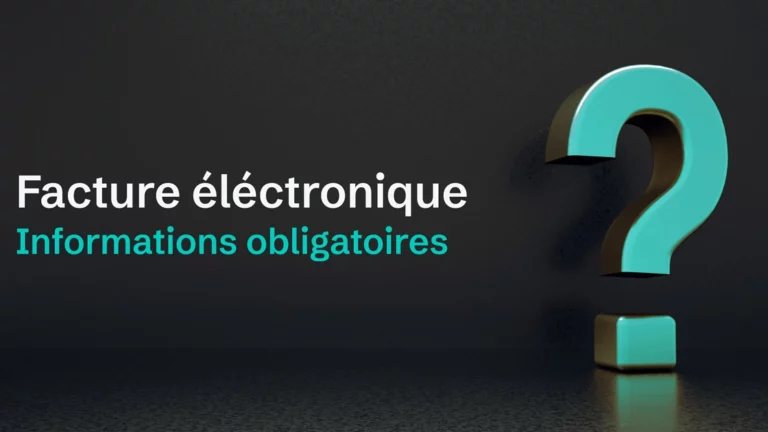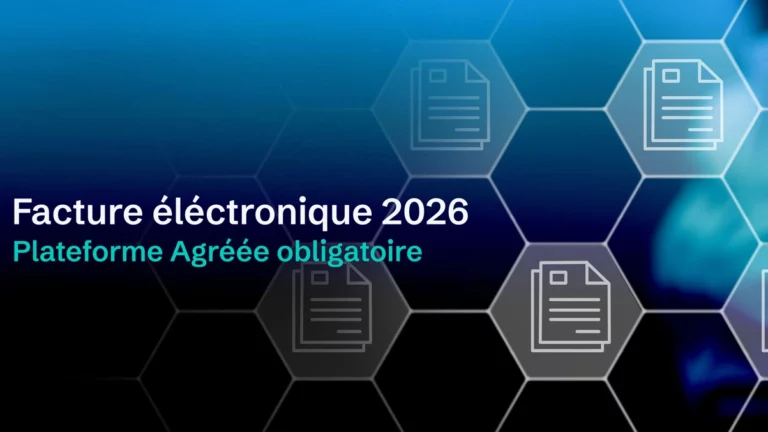The ecological transition is no longer an option for companies: it is a prerequisite for competitiveness and image. Customers, partners and employees expect organisations to reduce their environmental footprint while continuing to innovate and grow.
In this context, the dematerialisation of documents plays a key role. As well as being a regulatory requirement, with electronic invoicing due by 2026, it is an effective lever for reducing costs, boosting productivity and limiting carbon footprint. Thanks to solutions like Azopio, this transformation is now simple, fast and accessible to all businesses.
1. The weight of paper: an underestimated impact
In many companies, paper is still omnipresent: daily printouts, supplier invoices filed in cardboard folders, order forms sent by post… These practices may seem trivial, but their impact is colossal.
On average, an employee consumes 70 to 85 kg of paper per year. For an SME with 30 employees, this represents more than two tonnes of paper, the equivalent of 34 felled trees and more than 50,000 litres of water used in production alone.
In addition to production, there is also the energy consumed in printing, transporting mail and archiving in premises sometimes dedicated solely to storage. Each paper document therefore has a CO₂-intensive life cycle, which contributes to the company’s carbon footprint.
In contrast, a digital document circulates instantly, is stored in the cloud and does not require physical resources to be stored or retrieved.
2. Dematerialisation: an ecological and economic response
Going paperless means killing two birds with one stone.
In environmental terms, the company immediately reduces its printing volume and therefore its consumption of paper, water and energy. This translates into a significant reduction in CO₂ emissions.
But the benefits don’t stop there: dematerialisation is also synonymous with cost reduction and productivity gains. Less printing, fewer supplies, less storage space… And above all, less time wasted handling or searching for documents.
Here’s a concrete example: a service SME that used to manage its invoices manually has saved over €4,000 a year by eliminating printing and paper archiving. More importantly, its teams saved almost 3 working days a month, which were reinvested in higher added-value tasks.
3. Productivity at the service of the planet
Although the ecological argument is often put forward, managers are convinced above all by the gains in efficiency.
Paper is slow: a misplaced file can block an entire process, an invoice not entered on time can distort cash flow, and a lost letter can lead to a dispute. Conversely, a paperless workflow guarantees traceability and data security.
The consequence is twofold:
- less stress for teams, who have instant access to information,
- less CO₂ emitted, since internal shuttles, printing and physical storage disappear.
In this way, dematerialisation creates a virtuous circle: by first seeking to improve productivity, we automatically reduce our environmental footprint.
4. How Azopio simplifies paperless processes
Going digital can seem complex. Azopio has designed an intuitive, automated solution to address this concern.
- Documents (invoices, receipts, vouchers) are collected automatically, so there’s no need to file or print them.
- The tool usesartificial intelligence to extract essential data (dates, amounts, VAT, suppliers).
- Bank accounts are securely connected to reconcile payments and invoices in real time.
- Data is centralised and accessible at the click of a button, from any medium.
- Finally, archiving is automatic and compliant with legal standards, with back-up in the cloud.
Managers no longer need to juggle filing cabinets, spreadsheets and email inboxes. Document management and cash management are combined in a single, reliable and secure space.
5. Towards a credible CSR strategy
Dematerialisation fits in perfectly with a corporate social responsibility (CSR) approach. It offers visible and measurable results: less printing, less paper waste, less CO₂.
Communicating about these actions enhances the company’s image in the eyes of customers, partners and employees. But beyond the “greenwashing” effect, it embodies a structural change that makes a real contribution to overall performance.
Adopting a tool like Azopio means not only optimising your internal processes, but also making a concrete commitment to reducing your carbon footprint.
Conclusion
Dematerialisation is not just a trend: it’s a structural evolution that responds to the economic, regulatory and ecological challenges of the moment. Reducing the use of paper, streamlining exchanges and automating document management all combine to improve business performance and reduce environmental impact.
Azopio makes this transition simple and immediate. One click is all it takes to access your documents, monitor your cash flow and manage your business… while doing your bit for the planet.
👉 F ind out today how Azopio can help you reconcile efficiency and sustainability.




